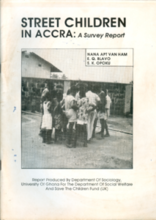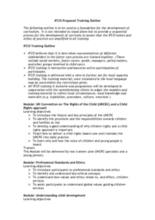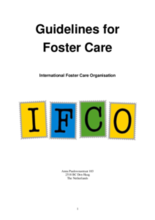Displaying 14351 - 14360 of 14550
Ideas and country examples on how to create or transform an educational centre for children living and working on the street.
In order to investigate orphans' situation and development in Iraqi Kurdistan, samples from the two available orphan care systems, the traditional foster care and the modem orphanages, are examined at an index test and at 1-year follow-u
This report is a follow up to HRW/Asia's publication of "Death By Default" on January 7, 1996, which found that most orphaned or abandoned children in China die within one year of their admittance to state-run orphanages and that the government does little or nothing to prevent this loss of life—despite the modest economic cost of so doing.
The chapters featured in this report offer a prognosis on the future of street children and offers recommendations to government and non-governmental bodies on how to help these children.
The sections featured in this report provide case studies of 25 street girls and discussion and conclusions based on these case studies.
Save the Children’s research and analysis of residential care services and the need for alternative non-institutional approaches for children separated from their families. This book examines policy and practices from work in Africa, Asia, Latin America and the Caribbean, and Eastern and Central Europe.
A training outline that conveys IFCO values and ethics of practice in foster care services. It provides 13 modules dealing with issues such as the rights of the child, child development, state care, foster care, transition from care, and legal and administrative management of child protection services.
Procedural standards outlining the roles and responsibilities of fsoter care authorities and agencies.
A comprehensive document outlining standards for residential care in Northern Ireland.
The Hague Convention puts forward a set of internationally recognized principles to guide states in the area of intercountry adoption.







